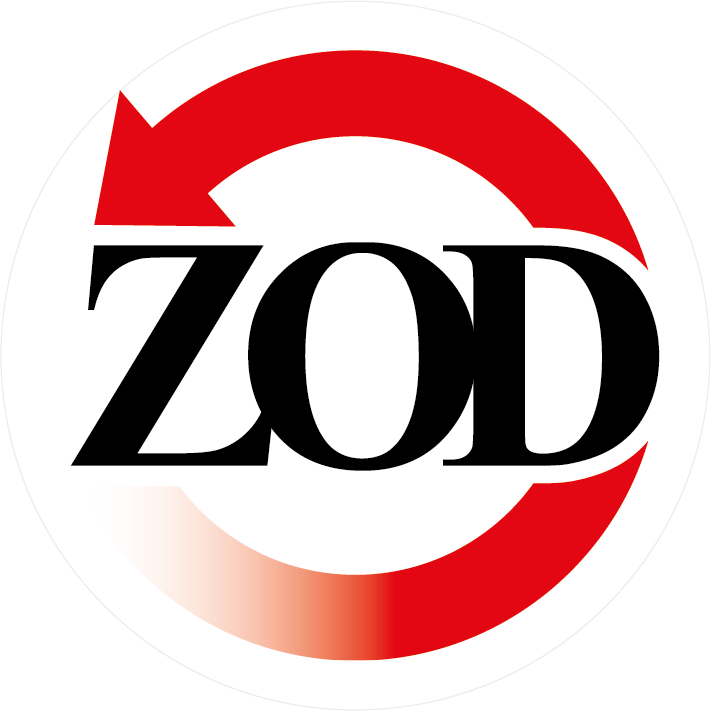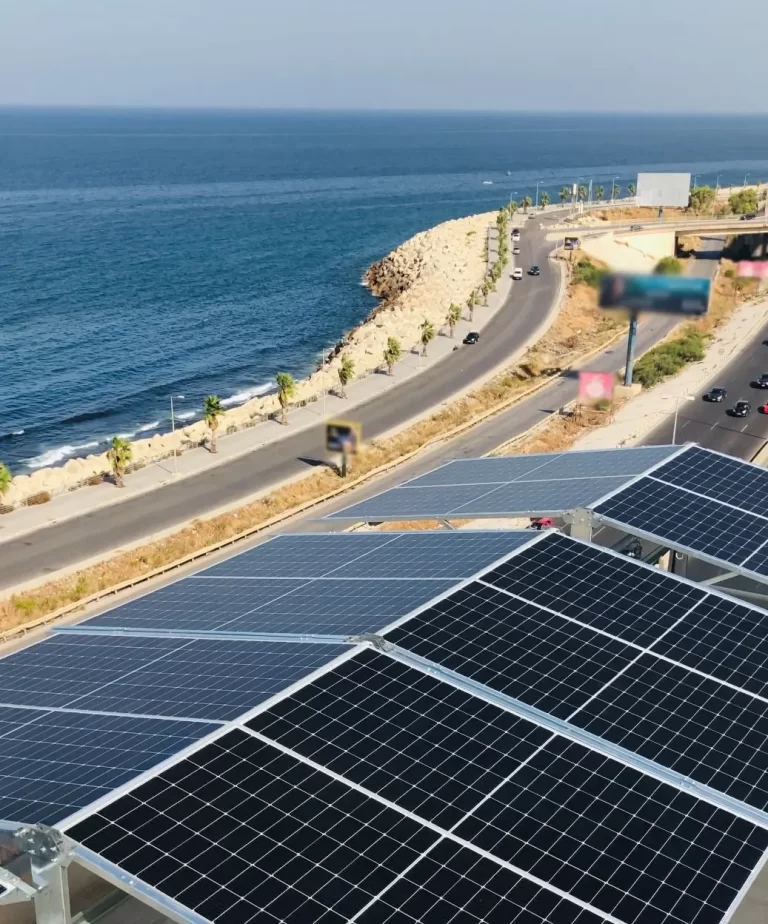Solar System Lebanon | How You Have Been Misinformed
In Lebanon, solar systems are the talk of the town. Given the Lebanese energy situation, or rather the lack of it, a huge number of Lebanese have rushed to purchase a solar energy system to cover their electric needs. Not that a solar system in Lebanon is anything but a sound decision. In fact, it is quite a reasonable move. The problem is that scamming solar energy suppliers are flooding the Lebanese market.
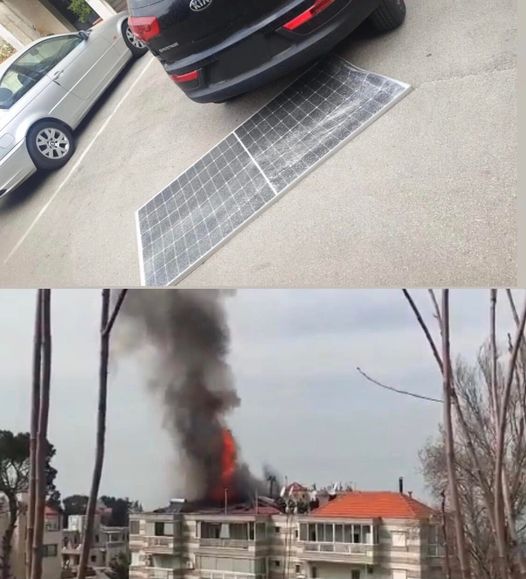
Solar Systems Installations in Lebanon
Purchasing a solar system in Lebanon from a bad supplier comes with its risks.
You may find your solar panels blown away, as soon as the wind picks up speed, which may as well be the next day. We have seen it happen so many times in Lebanon. It has been reported on the local news, and we have witnessed solar panels trampled under feet or worse broken on the roads, as cars casually roll over them. You can only feel sorry for the poor client.
While you may assume that this is the last thing you want, a badly designed or installed solar system can actually do worse. Have you seen the solar systems on fire on top of buildings in Lebanon, or better yet have you heard of those that were exploding on roofs?
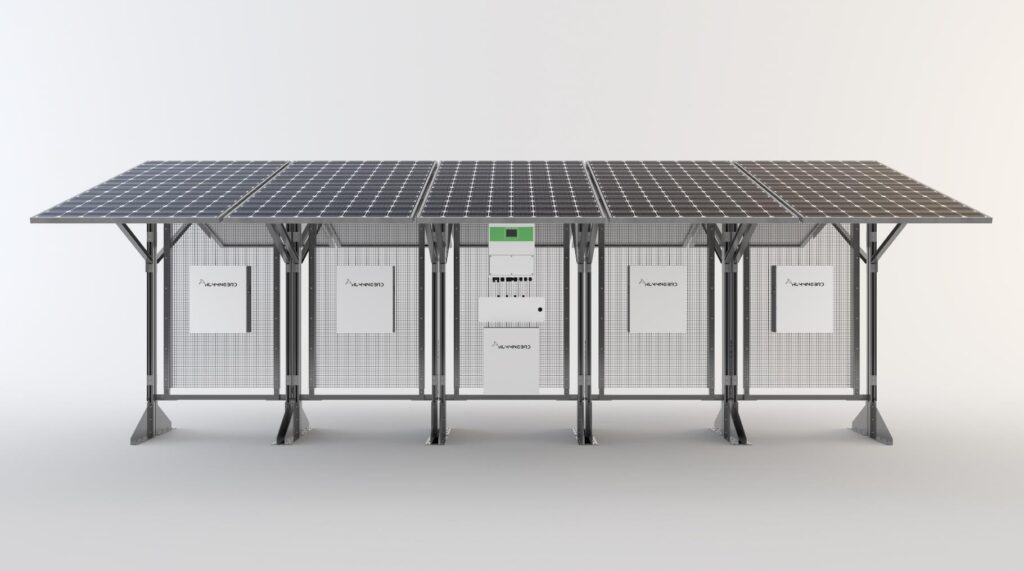
Many solar system suppliers purposefully try to lead you astray. They guide you – although, at times, ‘manipulate’ can be a better word – to commit to a purchase, not knowing enough about the solar energy system you are offered, only to regret your choice later on.
Installing a robust solar system in Lebanon, like elsewhere, is a long-term investment that eventually pays off. At Zod, we offer the best value for your money. Our systems are efficient. They last long. They are safe. Moreover, they are guaranteed to provide results. To note that Zod is a registered and licensed supplier.
But before we get into this, let us highlight the common pitfalls the Lebanese are making. In this article, we will address misconceptions to guide you in your solar energy buying process.
Limited Knowledge About Solar Systems in Lebanon
If you are looking to buy a solar system, you are likely to step into the nearest shop and ask about solar panels. You might even have conducted your own online research about how solar panels work, hovering over how many solar panels you might need to power your house, potential prices, and the amp you require. Good work, you have done your homework – or so you might think. As you will soon see, those are not enough to make a wise solar system purchase in Lebanon.
Wondering how you may know all this information and yet commit to a poor solar system decision? Read on.
Solar suppliers in Lebanon, know exactly what you are looking for, and they try to promise you just that, taking advantage of your eagerness to find a perfectly cheap adequate solution. In this article, you will be made aware of their tactics and their lies, and other important information about solar energy systems that you need to counter anyone who thinks you are gullible.
Solar System Suppliers in Lebanon Misrepresent Solar Power Output
Let’s begin with the most obvious problem. When looking for a solar system, Lebanese tend to seek one based on their knowledge regarding their consumption needs. More often than not, such knowledge is based on their generator subscriptions. Only, solar systems are not that straightforward.
Solar energy suppliers in Lebanon focus on amperes but this is not the foundation, or at least, it shouldn’t be. The focus should be on energy. Solar systems produce energy that is stored and consumed throughout the day and night. This energy should last until the next day, when it can produce power again by sun exposure. This energy needs to be calculated based on average consumption, since consumption increases and decreases throughout the day. Energy consumption is unstable, even in an uninhabited house, it fluctuates constantly even with a lack of expenditure.
Solar systems don’t have a certain tolerance limit like electricity generators. Therefore, buying a solar system based on amp is misleading. It may not even provide sufficient energy for the household.
Some local suppliers take advantage of this and misrepresent the actual amp power supplied by their system.
A solar system should not be compared to an electricity generator. It cannot be bought based on maximum consumption. The solar system functions in a way where energy is produced and stored for the day’s energy consumption. This should last for 24 hours – until the sun rises the next day and energy is produced again. Thus, solar energy should be well studied – it is purchased based on average consumption.

Solar Energy Provides Inconsistent Performance
When you are shown the solar system operating at its maximum efficiency (that is, in mid-day of a very sunny summer month) and made to expect this to be continuous, you are being mislead. Yes! The solar system will certainly function incredibly well on a long radiant summer day, but what about the dark and gloomy winter days, when the days are short and the sun is faint? An even better question would be, what do you plan to do when the solar system you have purchased no longer suffice to cover your daily consumption needs?
It is crucial to know how the solar system will function throughout the whole year, especially during the winter season.
Your electricity need will not change very much throughout the year, why should your output diminish to a point that renders your system almost useless? If you intend to get a solar energy system, you need to consider your system’s performance at its lowest to understand what you are really getting.
The Problems of An Unbalanced Solar System
A solar system has several components. It is not just made of solar panels. There are inverters and batteries too. More to the point, there are cables – not just any cables and- surge protection, overvoltage protection and many more safety considerations. We will dwell on this point later, but first thing’s first.
A solar system is a whole, which means the sum of its parts.
Many solar system suppliers in Lebanon tend to stress one item of the solar system while neglecting the others. Thus, for instance, you might purchase a high amp panel, coupled with an inverter that has limited power – meaning? Your batteries’ longevity would be cut short.
Battery choice should be based on accurate information. You need to take into account many aspects such as longevity, speed of charge, speed of consumption, charge frequency, among other factors.
In sum, you need to look for a solar system where all equipment are balanced with equal power. Otherwise, your investment in one component would tip-off the balance and play to your disadvantage. Getting a component that is more performing might be a wasted investment. If it is not properly installed in a system that feeds it, or feeds on it correctly, you might be doing more damage than good.
Solar Photovoltaic Panel Placement Matters
Solar photovoltaic systems are no trivial products. It is not just about what you install. It is also important to know how to install it, and even more importantly where. The process is not as straightforward as you think. We at Zod, use a professional software to calculate the ideal location, placement and angle to optimize your solar system’s performance. This process takes into consideration the sun’s circumference, among other factors, making sure that the rays will hit your solar panels in the best possible way, everyday. throughout all the different seasons.
If you invest in a solar system, you might as well make use of all its potential, right?
The solar photovoltaic system is expected to produce energy 85% during the year, taking into consideration the stormy days. Lebanon receives 300 sunny days out of the 365. Therefore, the solar energy should be sufficient for the client throughout all the different seasons. The client should receive 24 hours of electricity (depending on the client’s expenditure compared to specified energy expenses before the solar installation). If you have purchased a solar system from a random Lebanese solar supplier and suffer from energy shortage throughout the winter season, your solar system may perform at 85% during the summer, but less than 40% of the panels’ productivity would be used during the winter. This will not provide you with enough solar energy throughout the whole year. This is why you should buy based on average consumption, buying a solar system which performs at 40% during the winter, and above 50% throughout the rest of the year. Thus, you are provided with a sustainable system which provides you with the needed energy productivity throughout the whole year.
Tracking Solar Energy Output Can Maximize Performance
Even after the solar system’s installation, the production of solar energy should be monitored. Your consumption, expenditure of solar energy, battery power, and electricity should be accurately tracked. You, the client, should have access to accurate data and statistics.
Why? This data would allow you to maximize your solar system’s performance. Based your lifestyle requirements and energy needs, once you are equipped with the knowledge of your household appliances’ consumption and solar energy system‘s capacity, you become capable to manage your consumption effectively, optimizing your usage and plan your electricity expenditure accordingly.
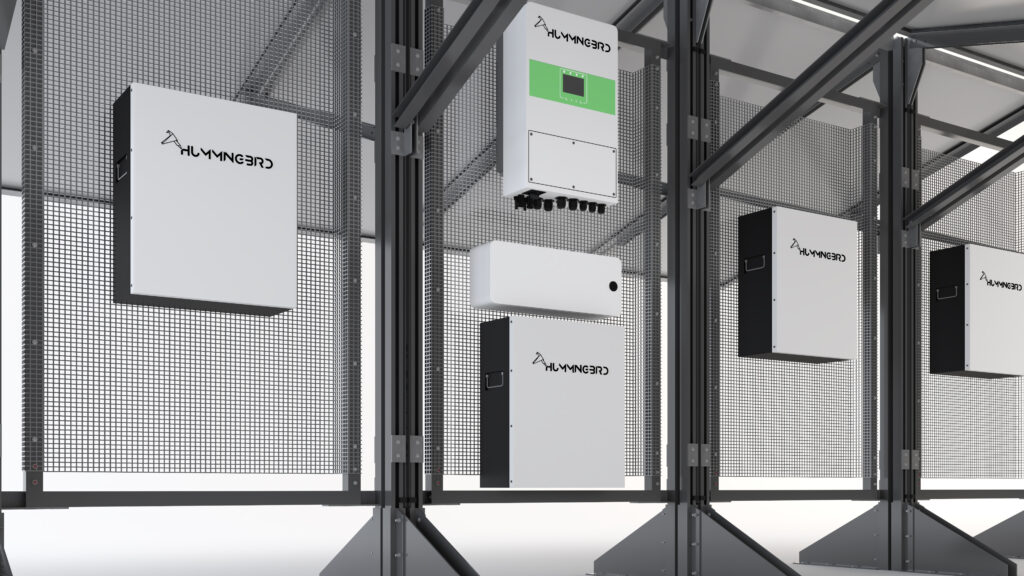
Knowing for instance that a certain task consumes a lot, you may decide to schedule it around noon so that the system would use its production to the fullest while it still has time to fully replenish its batteries. Such information is particular to each household and only sound data can allow you to perfect your usage.
Another factor to take into consideration is the energy consumption during the active seasons and eventful occasions where energy consumption increases. If the solar systems are calculated to only cover the average daily consumption, the client would surely run short on energy.
Solar Systems’ Safety Issues In Lebanon
Haven’t you been told as a kid not to play with electricity? How is this any different? A solar system is not made of Lego pieces that you just plug in together. Truth be told, you might as well end up with a burnt home.
The installation team needs to be a certified “electricity specialist”. It is mandatory that the technical team working on your solar installations be well trained and with valid experience. We are talking of extremely high voltage here. Any mistake can very well lead to many disastrous consequences, such as fire created by conductors carrying too much current or by overheating equipment. Safety is of the essence.
A solar system installation that has gone wrong might as well create an explosion due to static electricity or unsuitable electrical apparatus igniting from dust or flammable vapors. Tremendous high-energy arcs can cause harm to equipment, leading splinters to fly in various directions.
All these dangerous consequences are risks you are willingly taking by working with an unprofessional and inexperienced solar system supplier.
Unfortunately for all of us, most suppliers in Lebanon don’t follow safety regulations for electricity. They bring an untrained amateur, neglecting safety conditions and you, the client, eventually suffer the consequences.
The Importance of The Solar System’s Surroundings
Habitually the solar system suppliers situate the solar panel 30 degrees directed south, as it is the typical norm, while overlooking their surroundings and impact on the buildings. Thus, you will find that the solar system is in plain sight, blocking the view of the neighboring building. Therefore, aesthetically unpleasant.
There are ways to work around this. A solar system can be minimalist. It can be built with a simplistic design, without taking up too much space. In addition, the solar system is part of its surroundings and needs to blend in its environment. The roof and architecture of the building need to be taken into consideration, before installation.
Unlike what most Lebanese solar suppliers are doing, ideally, design comes first. Once it is ready and validated, comes implementation.
The Option To Switch Your Electric Source
Even if the situation in Lebanon improves, purchasing a solar system would still be a sound investment.
If eventually, things get better, and you choose to rely on electricity again, you can use the net meter to balance your electricity expenses by selling your energy production to the government and earning profits in return. You are, indeed, free to choose whether to rely on the solar system or go back to your regular electricity source. Your solar system purchase is a good decision, assuming you got a good one. The ministry of electricity would transfer your excess power production by reselling it to other electricity consumers.
You do have the option to be independent, which has its perks. At the end of the day, in case costs fluctuate (oil, gas, electricity…) and policies change, you would be unaffected.

A Solar Energy System Is An Investment
A solar system is not just a regular purchase. It is not a product that you can buy at a cheap price and consider that you have gotten a good deal. Spoiler alert – It is very likely that both quality and performance will suffer. You are not buying an equipment that you will buy today and discard the next. In fact, it is a system you wish would last long enough to pay you back. Otherwise, in retrospect, what initially appears to be cheap would actually have been purchased at a very steep price.
No one desires to put his money in an empty pocket.
Your solar system is an investment. It is supposed to last. It is intended to perform. If done well, while you may feel like you are spending a lot of money now, you are buying peace of mind, and a working, effective and efficient system – and this, once and for a very long time. You will reap the benefits long-term, when you find that you do not need to maintain it regularly nor change parts and batteries every few years.
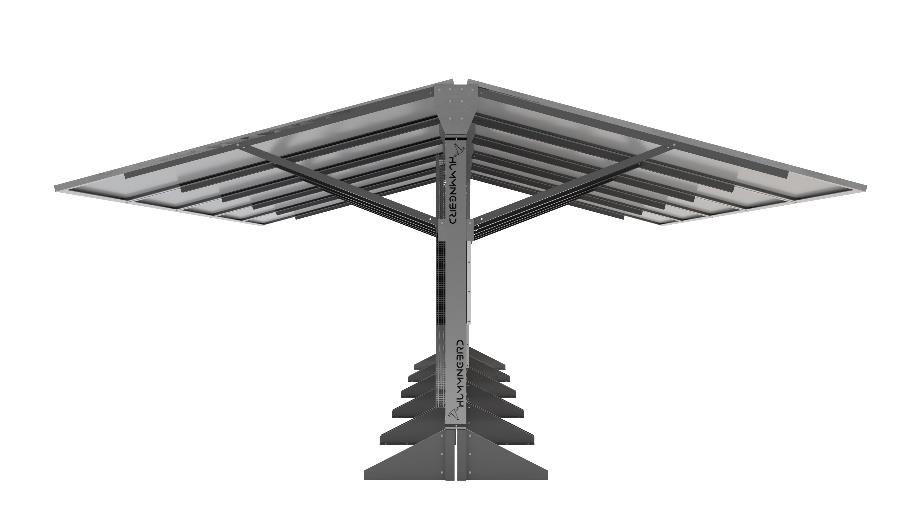
You may spend on a good solar system as much as 5 years of your electricity fees, with the confidence that you are making a good investment. In the next 5 years, you will find that you have minimal expenditures (10%). Then the 10 years after, you would find that you have saved even more than the first 5.
A reckless purchase is a waste of cash. With all things considered, it might even increase your bills. When you install an unfit solar system, aside from the money you have clearly wasted, you end-up with more fees due to the electricity sourced from your local generator, as your solar production would not be sufficient.
Five years later, your expenses would have actually increased with the solar system instead of going down. How so? The calculations are simple. All you have to do is add up your solar system cost to your electricity and generator fees over the 5 years and the maintenance costs you have inadvertently incurred – as, depending on your system, you are likely to find that your inverter is out of order and your battery is dead, among other complications.
Yes, a solar system is a long-term purchase. It is as much about the costs you avoid as those you incur. That’s why it is an investment.
Contact us to learn more
